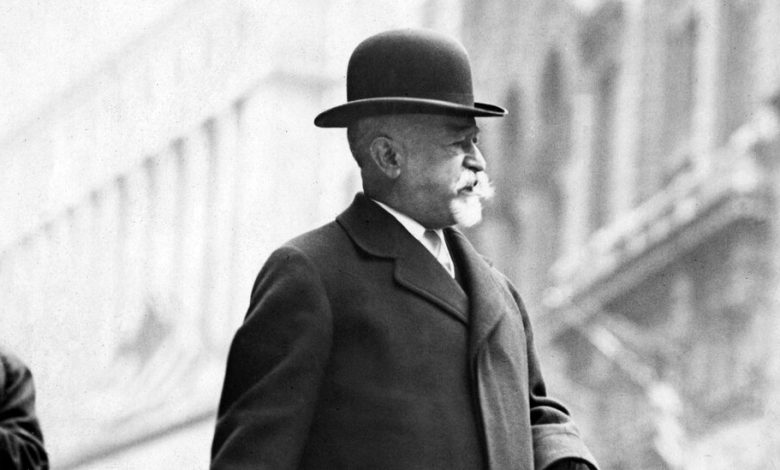What It Was Like to Be a Jewish Banker

THE MONEY KINGS: The Epic Story of the Jewish Immigrants Who Transformed Wall Street and Shaped Modern America, by Daniel Schulman
On Feb. 6, 1904, a group of powerful Jewish men met at the Fifth Avenue mansion of Jacob Schiff. Largely forgotten today (except by antisemitic conspiracy theorists), Schiff was a German immigrant who became one of the most powerful bankers on the planet, “a colossus in finance and Jewish life,” Daniel Schulman writes in “The Money Kings.”
That night, Schiff’s guests — who included Adolph Ochs, the publisher of The New York Times, and Oscar Straus, President Theodore Roosevelt’s minister to The Hague — were talking about the looming war between Japan and Russia. Schiff knocked on the table for silence and announced that he had been approached about arranging a loan to the Japanese government to help fund the war. Then he asked the same question my grandfather used to ask: What does it mean for the Jews?
That question recurs throughout “The Money Kings,” a sprawling history of the German Jews who came to the United States in the 19th century and helped create the modern economy while navigating their own identities as Jews, bankers and Americans.
Schiff is the book’s central figure, and by the early 20th century, on the eve of the Russo-Japanese War, his influence had spread beyond Wall Street. At the time, Jews were being raped and murdered in yet another series of pogroms in imperial Russia. These attacks burned such a lasting scar on the Jewish psyche that,
